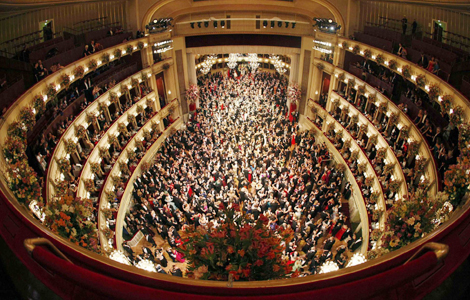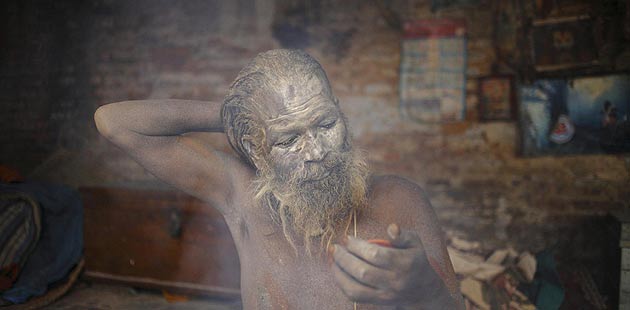Central bank on path of prudence
Updated: 2012-02-20 07:10
By Wang Xiaotian (China Daily)
|
|||||||||||
Falling growth and inflation fight require caution, bank official says
BEIJING - Prudence will be the watchword amid global economic uncertainty and the battle against inflation, the central bank said on Sunday.
"The pressures of slowing growth and rising inflation exist at the same time. The monetary stance will remain prudent," Jin Qi, assistant governor of the People's Bank of China, said in a statement published on the bank's website.
The remarks came a day after the central bank announced it will lower the reserve requirement on commercial lenders, for the second time in three months, to inject more liquidity into the system.
The central bank has to be cautious due to the uncertain global outlook and ongoing domestic economic development, Jin said.
The central bank said on Saturday that it will cut the reserve requirement ratio, or the proportion of money that lenders must set aside as reserve, by 50 basis points, effective from Feb 24.
Before the announcement, the reserve for major lenders stood at 21 percent. The move was expected to add about 400 billion yuan ($65.5 billion) to the market.
It followed a cut in the reserve requirement in December by 50 basis points. That cut was the first since December 2008.
The bank had hiked the reserve requirement six times last year in a bid to soak up liquidity and tackle inflation.
Lu Zhengwei, chief economist at the Industrial Bank, said the reserve cut was within expectations and was a response to tight liquidity.
"And it may be a start for several adjustments in the future."
However, this does not signify interest rates will be cut, he said.
"Cutting the reserve requirement doesn't necessarily mean a loosening monetary stance. And there is no likelihood of an interest rate cut in the short term as the central bank is guarding against further inflationary pressure."
GDP registered 8.9 percent year-on-year growth in the fourth quarter of 2011, the slowest pace since the first half of 2009. But the consumer price index rose 4.5 percent in January after its growth declined for five months.
First quarter lending is usually higher than for the rest of the year, Zuo Xiaolei, chief economist at China Galaxy Securities, said.
Yuan positions for foreign exchange purchases, an indicator of capital flow, fell for the first time in four years in October, and declined again in November and December.
"As the trade surplus shrinks, foreign direct investment slows down and yuan holdings moderate, there will be more space for further cuts and the reserve requirement could fall by 2 to 3 percentage points over the year," Guo Tianyong, director of the Central University of Finance and Economics' research center, said.
Exports and imports fell for the first time in two years in January and new lending was at its lowest level, during the same period, in five years.
The broad measure of money supply, M2, which covers cash in circulation and deposits, grew by 12.4 percent year-on-year by the end of January, the lowest since June 2001.
The central bank said last week that it will maintain an appropriate lending growth and keep total financing at a "reasonable" level.
A mix of policy tools, including interest rates, will be used to maintain reasonable credit growth and curb inflation, it said.
The central bank is allowing the nation's five biggest lenders to increase first-quarter lending by a maximum of about 5 percent from a year earlier, according to a Bloomberg report quoting two anonymous workers at State lenders.
Hot Topics
Wu Ying, iPad, Jeremy Lin, Valentine's Day, Real Name, Whitney Houston, Syria,Iranian issue, Sanyan tourism, Giving birth in Hong Kong, Cadmium spill, housing policy
Editor's Picks
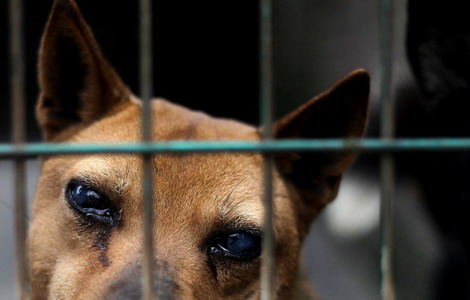
|

|
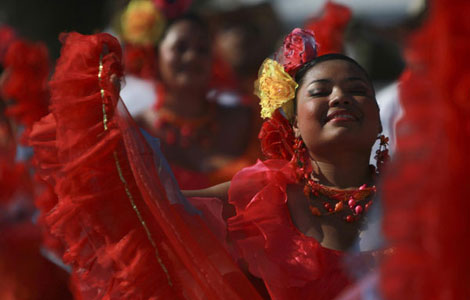
|
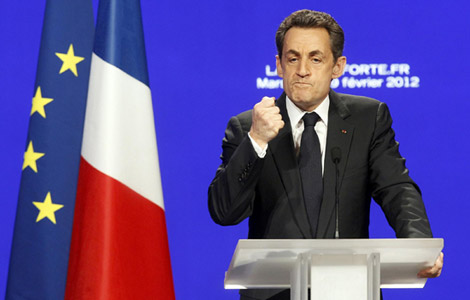
|

|

|



